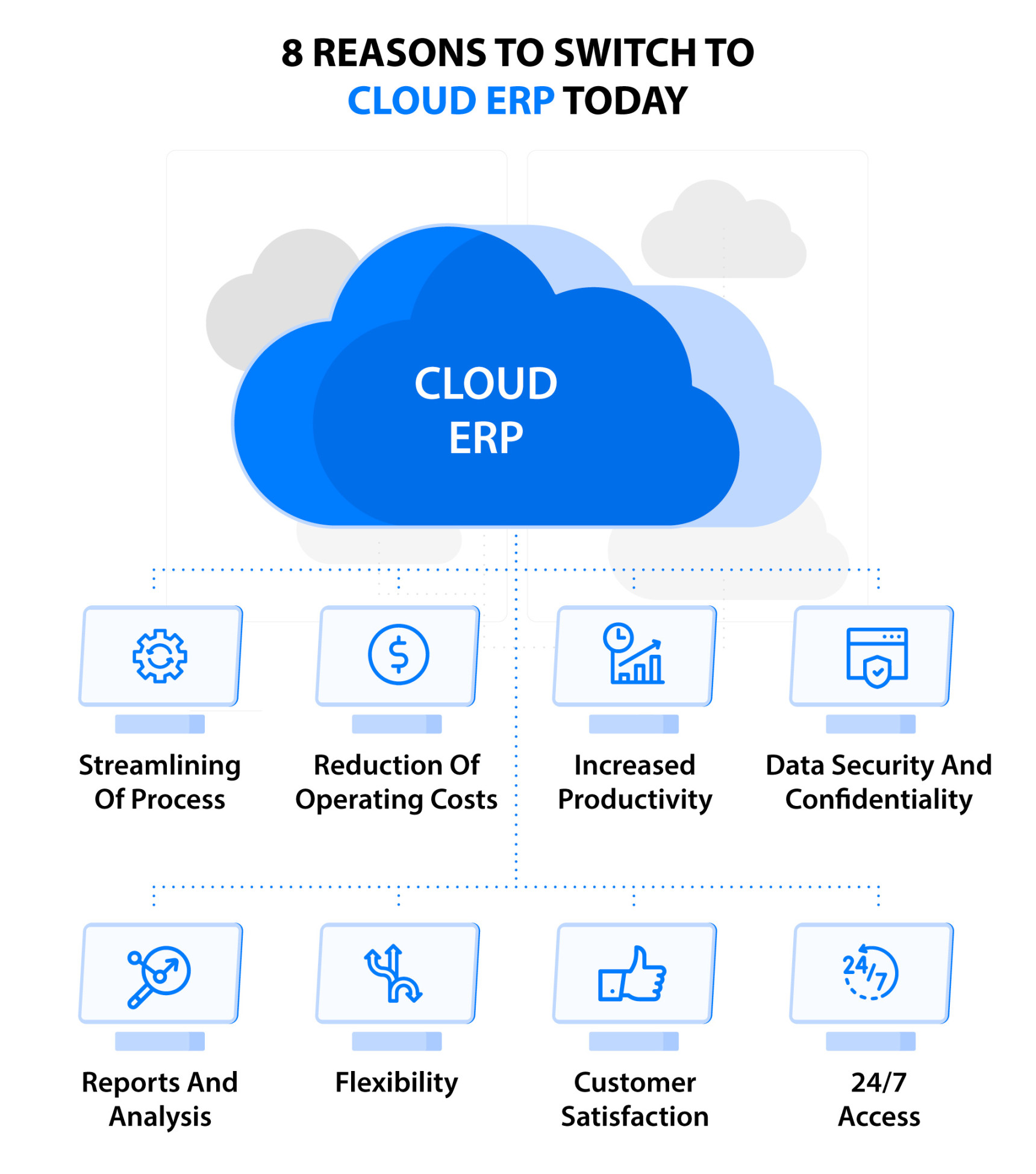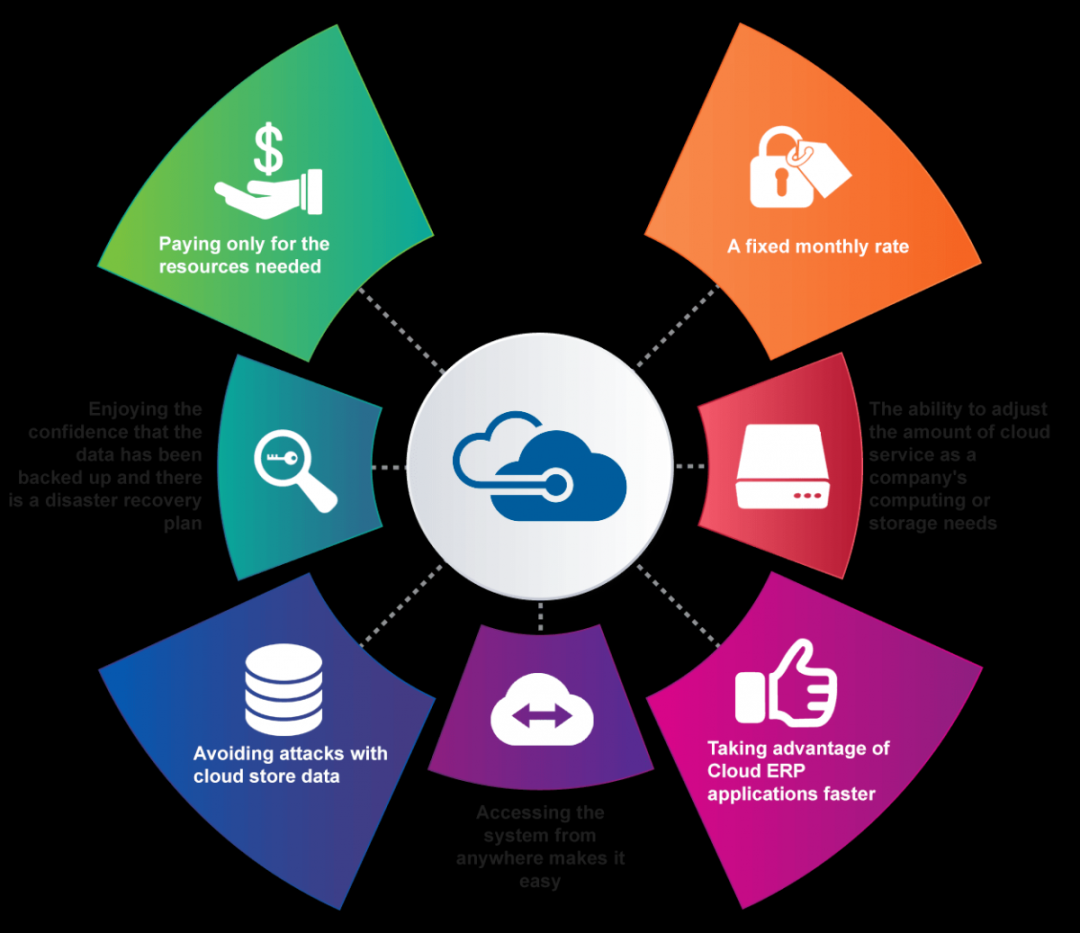In today’s dynamic business landscape, efficiency and agility are paramount. Cloud ERP solutions have emerged as a game-changer, empowering organizations of all sizes to streamline operations, optimize resources, and gain a significant competitive edge. But what exactly are cloud ERP solutions, and how can they benefit your business? This comprehensive guide delves into the world of cloud ERP, exploring its core functionalities, advantages, and considerations for implementation.
Demystifying Cloud ERP: A Centralized Hub for Business Operations

Cloud ERP, or Cloud-based Enterprise Resource Planning, refers to a software system that manages various critical business functions through a secure online platform. Imagine a centralized hub that integrates all your core departments, including finance, accounting, inventory, human resources, customer relationship management (CRM), and supply chain management. Cloud ERP seamlessly connects these functionalities, providing a unified view of your entire operation in real-time.
Core Functionalities of Cloud ERP: Streamlining Your Business Processes

Cloud ERP offers a robust suite of features designed to automate and optimize a wide range of business activities. Here are some of the key functionalities:
- Financial Management: Cloud ERP automates core accounting tasks such as accounts payable and receivable, general ledger, and financial reporting. This ensures accuracy, simplifies compliance, and facilitates better financial decision-making.
- Inventory Management: Gain real-time visibility into your stock levels, manage purchase orders effectively, and optimize inventory control. Cloud ERP helps prevent stockouts, reduces carrying costs, and streamlines your supply chain.
- Customer Relationship Management (CRM): Strengthen your customer interactions by managing leads, sales pipelines, and customer service inquiries within the cloud ERP system. This fosters improved customer satisfaction and loyalty.
- Human Resource Management (HRM): Automate HR processes like payroll, benefits administration, and employee onboarding. Cloud ERP streamlines HR tasks, improves data accuracy, and empowers a more efficient HR team.
- Supply Chain Management: Cloud ERP connects you with suppliers and distributors seamlessly, enabling efficient order management, delivery tracking, and better inventory planning. This translates to reduced costs and improved operational efficiency.
Unveiling the Advantages of Cloud ERP: A Boon for Businesses
Cloud ERP offers a multitude of advantages over traditional on-premise ERP systems. Here’s a glimpse into the key benefits:
- Cost-Effectiveness: Cloud ERP eliminates the need for expensive upfront hardware and software investments. Additionally, subscription-based pricing offers predictable costs and eliminates the burden of ongoing maintenance expenses.
- Scalability and Flexibility: Cloud ERP solutions are inherently scalable. As your business grows, you can easily add new users, functionalities, and storage capacity without significant IT intervention. This flexibility caters to the dynamic needs of businesses.
- Accessibility and Mobility: Cloud ERP allows authorized users to access the system from anywhere, anytime, using any internet-connected device. This fosters remote work capabilities and improves collaboration across departments and geographical boundaries.
- Enhanced Security: Cloud ERP vendors prioritize robust security measures to protect your sensitive business data. Regular updates and backups ensure data integrity and minimize the risk of security breaches.
- Automatic Updates and Maintenance: Cloud ERP providers handle system updates and maintenance, eliminating the need for your IT team to dedicate resources to managing software upgrades. This translates to a more streamlined and efficient IT operation.
- Improved Data Visibility and Insights: Cloud ERP provides real-time access to critical business data across all departments. This empowers data-driven decision-making, allowing you to identify trends, optimize operations, and gain a competitive edge.